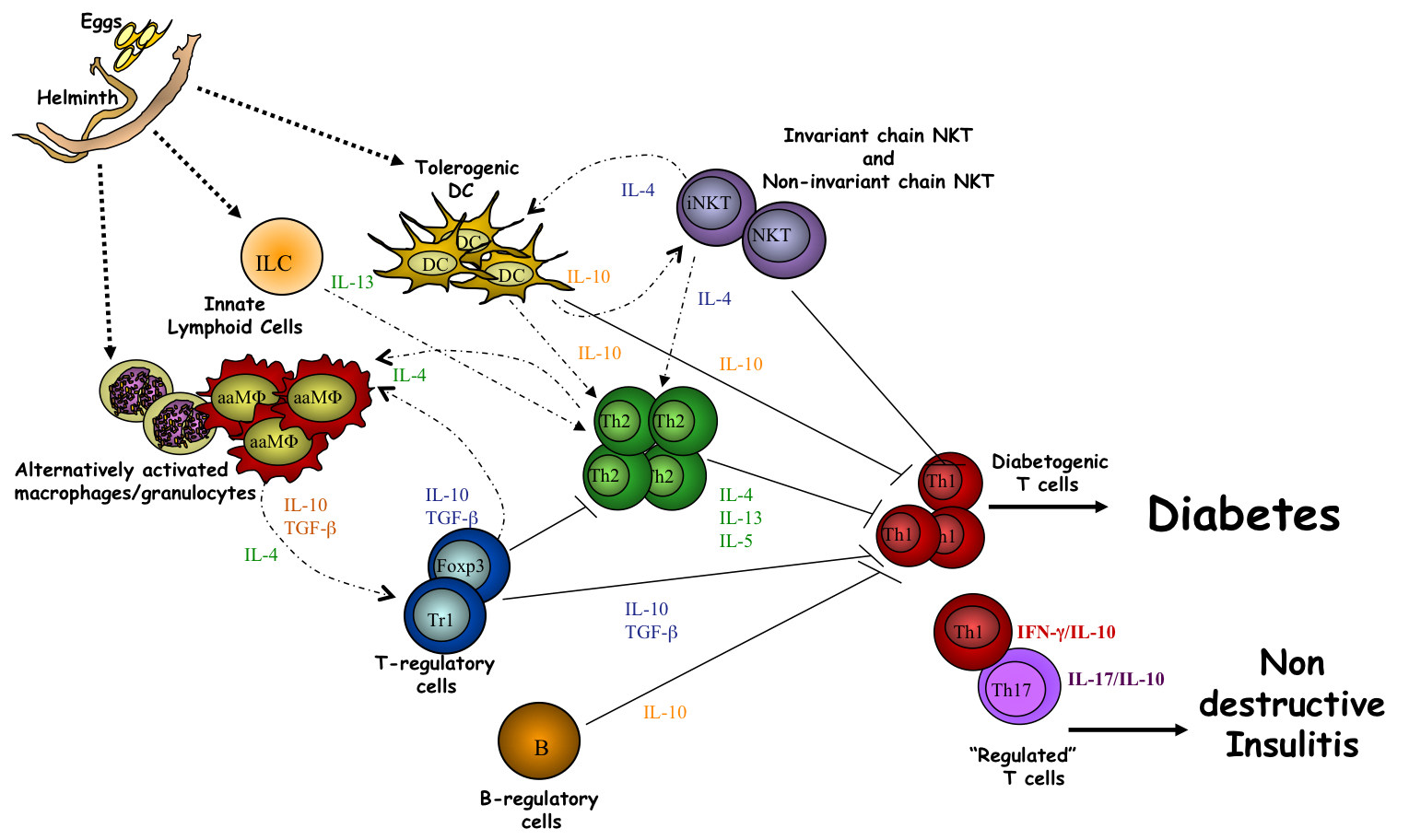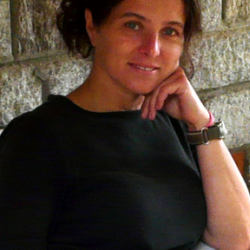Research
My main scientific interest is the interplay between infections and autoimmunity. I have extensively used the NOD mouse model of type 1 diabetes to understand how helminths and other infectious agents might affect autoimmune disease and, in particular, to study how microbial molecules can be used to induce tolerance and prevent autoimmunity. Much of my work in this area has been carried out in the Cooke lab within the Cambridge Department of Pathology, where I have actively collaborated with the Dunne group (Pathology, Cambridge), the Mastroeni group (Veterinary School, Cambridge) and the Haas group (Borstel, Germany) and have co-supervised the PhD research of Oliver Burton and Sam Hall.
More recently I have been extending my studies of the immunomodulatory role of microbially-derived products to study their effects on malignant cells in collaboration with Dr Susanne Turner. This is important because S. mansoni antigens are known to induce an anti-inflammatory signature in antigen presenting cells and to polarise T cells towards a Th2 and T regulatory phenotype. Together, these immune responses could favour carcinogenesis and metastasis, making it important to study the effects of S. mansoni antigens in the context of malignancy. My studies previously have investigated the ability of helminth-derived molecules to modulate pathogen recognition receptors (Toll-like receptors and C-type lectin receptors) expressed on immune cell populations and we are now using this approach on malignant cell lines.
These distinct lines of work are linked by my overarching interest in translational immunology and it is my hope that insights emerging from my work may enable the identification of novel therapeutic targets or otherwise contribute to improved treatments for autoimmunity and cancer.

Involvement of innate and acquired immune responses in helminth antigen-mediated diabetes protection.
In the context of T1D prevention, Type-2 immunity to helminth antigens involves several classes of immune cells: B cells, tolerogenic DCs, alternatively activated MΦ/granulocytes and innate lymphoid cells provide the right cytokine environment to induce Th2, NKT and Treg generation /expansion. In turn, cytokine secretion from NKT, Th2 and Tregs feeds back and maintains the tolerogenic and alternatively activated phenotypes of antigen presenting cells. As a result, diabetogenic (Th1) cells become regulated, inducing only a non-destructive insulitis.
Publications
Thomas DC, Wong FS, Zaccone P, Green EA, Wållberg M. Protection of islet grafts through transforming growth factor-β-induced tolerogenic dendritic cells. Diabetes. 2013 Sep;62(9):3132-42.
Zaccone P, Cooke A. Vaccine against autoimmune disease: can helminths or their products provide a therapy? Curr Opin Immunol. 2013 Jun;25(3):418-23.
Burton OT, Gibbs S, Miller N, Jones FM, Wen L, Dunne DW, Cooke A, and Zaccone P. Importance of TLR2 in the direct response of T lymphocytes to Schistosoma mansoni antigens. Eur J Immunol 2010 40(8): 2221-9.
Zaccone P, Burton O, Miller N, Jones FM, Dunne DW, and Cooke A. Schistosoma mansoni egg antigens induce Treg that participate in diabetes prevention in NOD mice. Eur J Immunol 2009 39(4): 1098-107.
Zaccone P, Burton OT, and Cooke A. Interplay of parasite-driven immune responses and autoimmunity. Trends Parasitol 2008 24(1): 35-42.
Zaccone P, Burton OT, Gibbs S, Miller N, Jones FM, Dunne DW, and Cooke A. Immune modulation by Schistosoma mansoni antigens in NOD mice: effects on both innate and adaptive immune systems. J Biomed Biotechnol 2010: 795210.
Zaccone P, Burton OT, Gibbs SE, Miller N, Jones FM, Schramm G, Haas H, Doenhoff MJ, Dunne DW, and Cooke A. The S. mansoni glycoprotein omega-1 induces Foxp3 expression in NOD mouse CD4(+) T cells. Eur J Immunol 2011 41(9): 2709-18.
Zaccone, P. and Cooke, A. Infectious triggers protect from autoimmunity. Semin Immunol 2011 23(2): 122-9.



